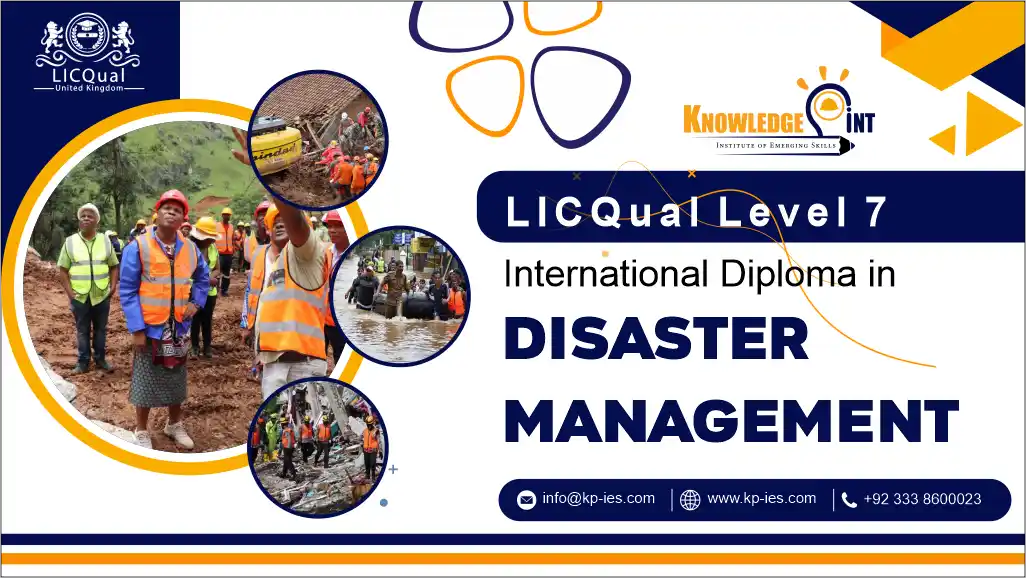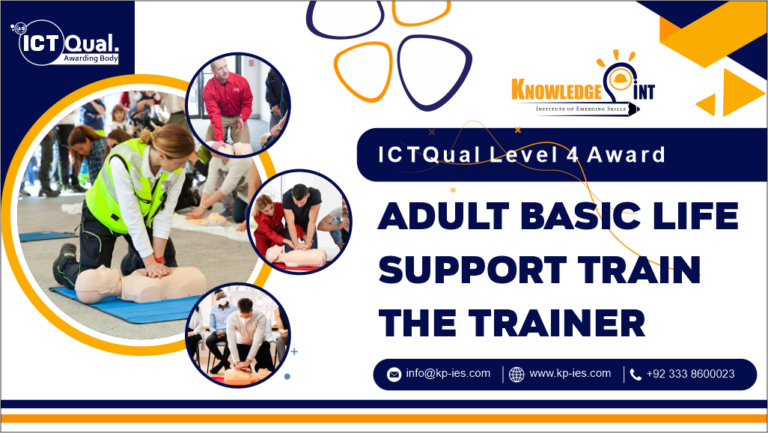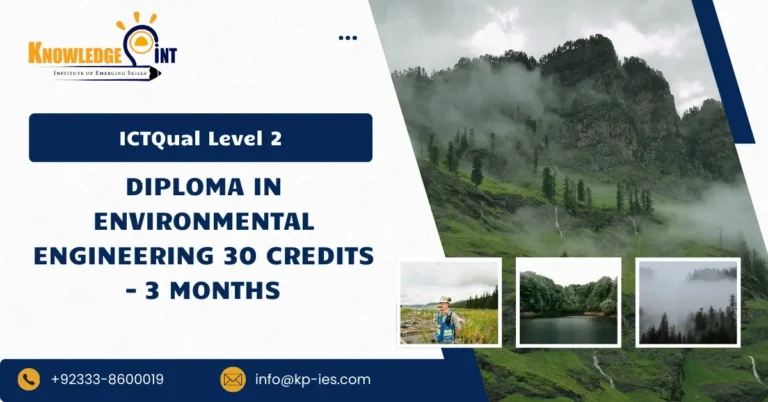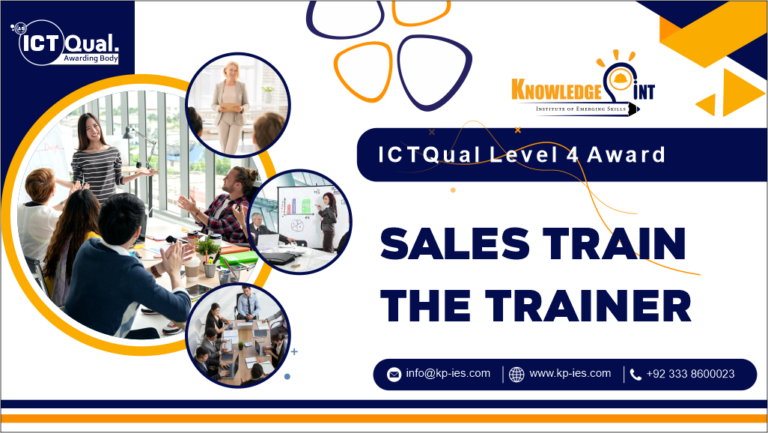In an era where natural and man-made disasters are increasingly prevalent, the need for skilled disaster management professionals has never been greater. The LicQual Level 7 International Diploma in Disaster Management stands at the forefront of this vital field, offering a comprehensive and advanced education designed to prepare professionals for the complexities of disaster and emergency management.
The LicQual Level 7 International Diploma in Disaster Management is a prestigious postgraduate qualification tailored for those seeking to deepen their expertise in disaster management. This program provides an in-depth understanding of the various aspects of disaster preparedness, response, recovery, and mitigation. It is designed for professionals who are either already in the field or those aspiring to enter it, ensuring they are well-equipped to handle the multifaceted challenges that disasters present.
This diploma is not just about gaining knowledge; it’s about developing the skills and confidence to make a real difference in times of crisis. The program’s comprehensive curriculum ensures that graduates are capable of addressing the full spectrum of disaster management challenges. Whether you’re looking to advance your career or make a significant impact in your community, this diploma provides the expertise and credentials you need.
Course Overview
The LicQual Level 7 International Diploma in Disaster Management consists of 6 mandatory units which are as follows.
The learning outcomes of LicQual Level 7 International Diploma in Disaster Management include:
Principles of Disaster Management
- Understanding Fundamental Concepts:
- Comprehend the core principles and theories of disaster management.
- Differentiate between various types of disasters (natural, technological, and human-made).
- Risk Identification and Analysis:
- Identify potential hazards and vulnerabilities.
- Analyze risk factors and their potential impacts on communities.
- Disaster Preparedness and Planning:
- Develop comprehensive disaster preparedness plans.
- Implement strategies for effective disaster response and recovery.
- Coordination and Collaboration:
- Facilitate coordination among stakeholders during disaster events.
- Promote collaboration between governmental and non-governmental organizations.
International Research: Confronting the Challenges of Disaster Risk Reduction and Development
- Global Perspectives on Disaster Risk Reduction (DRR):
- Analyze international frameworks and policies related to DRR.
- Evaluate the effectiveness of global DRR initiatives.
- Challenges in DRR and Development:
- Identify challenges and barriers to effective DRR in various contexts.
- Propose solutions to integrate DRR into sustainable development practices.
- Research and Data Analysis:
- Conduct rigorous research on DRR topics.
- Utilize data to inform DRR strategies and decision-making.
- Innovative Approaches:
- Explore and evaluate innovative approaches to disaster risk reduction.
- Develop context-specific DRR strategies that align with international best practices.
Disaster Resilience, Adaptation and Sustainability
- Concepts of Resilience and Sustainability:
- Understand the principles of resilience and sustainability in disaster management.
- Analyze how these concepts apply to community and environmental resilience.
- Adaptation Strategies:
- Develop adaptive strategies to enhance resilience to disasters.
- Implement sustainable practices that reduce disaster risks.
- Assessment and Measurement:
- Assess the resilience of communities and systems.
- Measure the effectiveness of adaptation and sustainability initiatives.
- Policy and Implementation:
- Formulate policies that promote disaster resilience and sustainability.
- Ensure the integration of resilience and sustainability into disaster management plans.
Vulnerability and Risk Assessment
- Identification of Vulnerabilities:
- Identify and categorize vulnerabilities within communities and systems.
- Understand the socio-economic, environmental, and physical factors contributing to vulnerability.
- Risk Assessment Techniques:
- Apply qualitative and quantitative methods to assess risks.
- Develop comprehensive risk profiles for various disaster scenarios.
- Data Collection and Analysis:
- Collect and analyze data related to vulnerability and risk.
- Use Geographic Information Systems (GIS) and other tools to visualize risk data.
- Risk Mitigation Strategies:
- Propose and evaluate strategies to mitigate identified risks.
- Integrate risk assessment findings into disaster management planning.
Advanced Research Methodology – Dissertation
- Research Design and Planning:
- Develop a clear and feasible research proposal for a dissertation.
- Understand the components of a well-structured research project.
- Literature Review:
- Conduct a comprehensive literature review related to the research topic.
- Identify gaps and formulate research questions based on the literature.
- Data Collection and Analysis:
- Utilize advanced research methodologies for data collection.
- Analyze data using appropriate statistical and qualitative methods.
- Thesis Writing and Presentation:
- Write a coherent and structured dissertation.
- Present research findings effectively to academic and professional audiences.
Participants – Governmental Disaster Management
- Roles and Responsibilities:
- Understand the roles and responsibilities of governmental agencies in disaster management.
- Evaluate the effectiveness of government-led disaster management initiatives.
- Policy and Legislation:
- Analyze policies and legislation related to disaster management.
- Assess the impact of these policies on disaster preparedness and response.
- Coordination and Collaboration:
- Enhance coordination and collaboration among governmental and non-governmental stakeholders.
- Facilitate effective communication and information sharing during disasters.
- Capacity Building:
- Develop strategies for building the capacity of governmental agencies in disaster management.
- Implement training programs and simulations to improve preparedness and response capabilities.
Course Benefits of the LicQual Level 7 International Diploma in Disaster Management :
1. Specialized Expertise
- Auditing Proficiency: Gain specialized knowledge and skills in auditing energy management systems according to the ISO 50001:2018 standard.
- Industry Recognition: Earn a globally recognized qualification that demonstrates your proficiency as an energy management systems auditor.
2. Career Advancement
- Expanded Career Opportunities: Qualify for roles such as Lead Energy Auditor, Energy Management Consultant, or Compliance Officer.
- Higher Earning Potential: Enhance your value to employers and increase your earning potential with specialized expertise in energy management auditing.
3. Industry-Relevant Skills
- Practical Application: Acquire practical skills and techniques for planning, conducting, and documenting energy management system audits.
- Effective Communication: Develop communication skills to interact with auditees, audit teams, and stakeholders effectively.
4. Contribution to Sustainability
- Promotion of Energy Efficiency: Play a key role in promoting energy efficiency and reducing environmental impact within organizations.
- Support for Sustainable Practices: Assist organizations in implementing and maintaining energy management systems that support sustainability goals.
5. Quality Assurance
- Compliance Assurance: Help organizations achieve compliance with ISO 50001:2018 requirements and other relevant regulatory standards.
- Risk Mitigation: Identify areas of non-conformance and provide recommendations for corrective actions to mitigate risks.
6. Continuous Professional Development
- Lifelong Learning: Engage in continuous professional development by staying updated with the latest developments and trends in energy management auditing.
- Networking Opportunities: Connect with industry professionals, auditors, and experts, expanding your professional network and opportunities.
7. Organizational Benefits
- Improved Performance: Contribute to the improvement of organizational energy performance through effective auditing and recommendations for continuous improvement.
- Enhanced Reputation: Help organizations build a positive reputation for their commitment to energy management and sustainability practices.
8. Personal Growth
- Leadership Development: Develop leadership skills to effectively manage audit teams, delegate tasks, and ensure audit objectives are met.
- Confidence Boost: Gain confidence in your abilities as an energy management systems auditor through practical training and hands-on experience.
The future progression of the LicQual Level 7 International Diploma in Disaster Management is promising, offering graduates a range of advanced educational and professional opportunities. Here’s a look at potential pathways:
Academic Progression
- Doctoral Studies (PhD):
- Graduates can pursue a PhD in Disaster Management, Emergency Management, Public Health, Environmental Science, or related fields. This advanced research degree allows individuals to contribute original research to the field and become subject matter experts.
- Postdoctoral Research:
- After completing a PhD, individuals may engage in postdoctoral research to further deepen their expertise, collaborate on advanced projects, and publish research findings.
- Specialized Certifications:
- Graduates can enhance their credentials with specialized certifications in areas like Crisis Management, Business Continuity, Risk Assessment, or Humanitarian Assistance, offered by professional bodies and organizations.
Professional Development
- Senior Management and Leadership Roles:
- The advanced knowledge and skills gained from the diploma can lead to senior management positions in governmental agencies, international organizations, NGOs, and private sector companies involved in disaster management and emergency response.
- Consultancy:
- Graduates can work as consultants, providing expert advice on disaster risk reduction, emergency preparedness, resilience building, and recovery planning for organizations and governments globally.
- Policy Development and Advocacy:
- With a deep understanding of disaster management principles and practices, graduates can influence policy development at local, national, and international levels, advocating for effective disaster risk reduction and sustainable development practices.
- Teaching and Training:
- Experienced professionals can move into academic roles, teaching disaster management courses at universities and training the next generation of disaster management professionals. They may also develop and lead training programs and workshops for organizations.
Interdisciplinary Opportunities
- Public Health and Epidemiology:
- Graduates can work in public health sectors, focusing on the intersection of disaster management and public health, including emergency preparedness for health crises and epidemics.
- Climate Change Adaptation:
- As climate change increasingly impacts disaster frequency and severity, there are opportunities to work in climate change adaptation, developing strategies to mitigate and adapt to the effects of climate change on communities.
- Urban Planning and Resilience:
- Professionals can collaborate with urban planners and engineers to design resilient infrastructure and sustainable urban environments that can withstand and recover from disasters.
International Opportunities
- Global Organizations:
- Graduates can work with global organizations like the United Nations, World Health Organization, International Red Cross, and other international bodies focused on disaster risk reduction and humanitarian aid.
- Field Work in Disaster-Prone Regions:
- There are opportunities to work in disaster-prone regions around the world, helping communities to prepare for, respond to, and recover from disasters, thereby making a tangible impact on the ground.
By pursuing these pathways, graduates of the LicQual Level 7 International Diploma in Disaster Management can significantly contribute to enhancing global disaster preparedness, resilience, and response capabilities, making a meaningful difference in the field.







